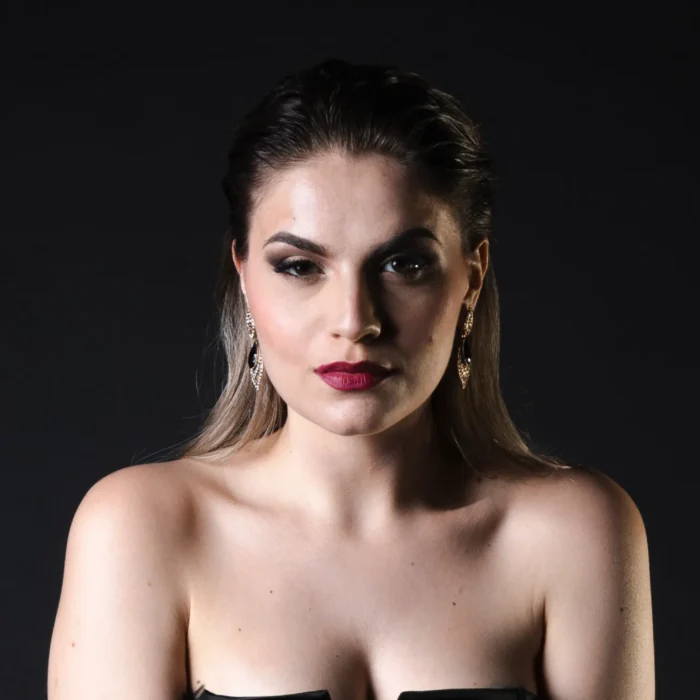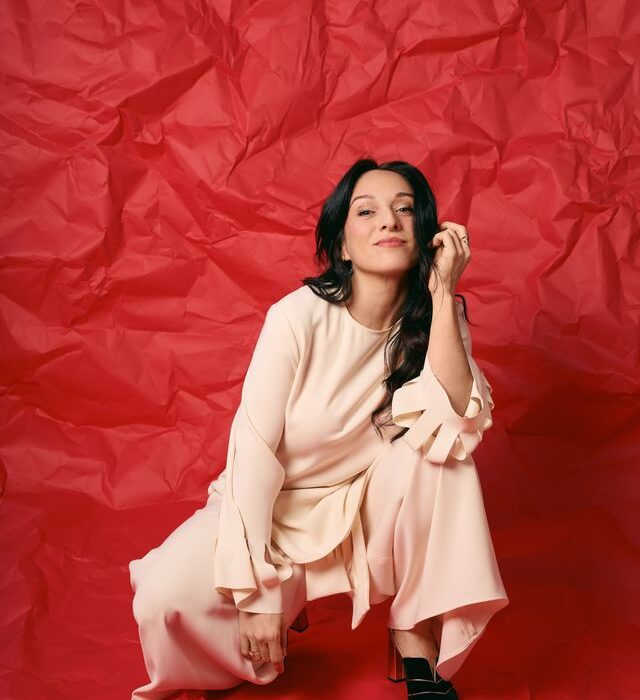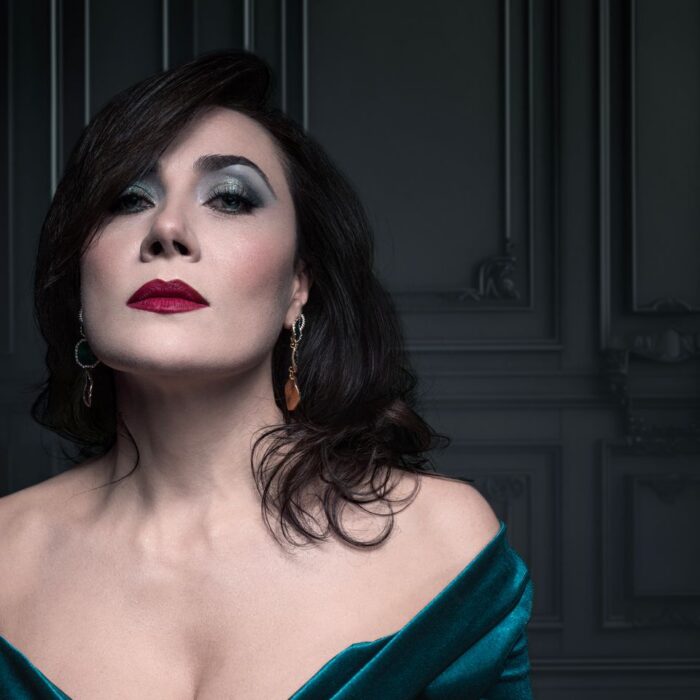Soprano Rainelle Krause is a rising star in the opera world for her unflinching ferocity coupled with a deeply truthful humanity on the stage.
She has become one of the go-to Queens of the Night, singing the role at the Royal Danish Opera, Dutch National Opera, Staatsoper Berlin Unter den Linden, Nashville Opera, Les Arts, Deutsche Oper Berlin, Theater Basel, Oper Köln, Opera Orchestre Montpellier Occitanie, and North Carolina Opera.
This season, she will continue to bring her Queen to new houses, including for her Metropolitan Opera and Santa Fe Opera debuts.
She will also sing the role with Opera Atelier and St. Louis Symphony.
OperaWire spoke to the rising star about the role of the Queen of the Night, her Met debut, and dream roles she would like to sing.
OperaWire: You will be performing the Queen of the Night all around the world. What do you love about this role?
Rainelle Krause: There’s nothing quite like singing Queen. It’s such an iconic role, and I really love knowing that on any given night, someone in the audience is hearing it live for the first time. It’s really special to be able to do that for people. For myself, though, it’s just so satisfying to sing! Fast-paced and unrelenting, no time to ease into it on stage, the two arias are both like downhill skiing, or surfing a wave; there’s no time to “control” anything, but you can ride the momentum and find the flow, and that’s an exhilarating feeling.
OW: What are the biggest challenges of performing this work?
RK: I think navigating the racism and misogyny of the original text in ways that maintain character depth without either condoning or simply erasing can be really challenging, for directors and for companies. With Queen, for example, if she doesn’t have the patriarchal entitlement of Sarastro and the entire Sun Temple to shape her beliefs and actions, she becomes a cartoon villain instead of a deeply flawed, manipulative woman who believes in the end she is justifying through pretty heinous means. Sometimes simpler is better, though, depending on the production — she can be very effective as an archetype, as the fairytale villain, but navigating these themes and making these choices is one of the major challenges of tackling a “Flute” today.
OW: With six productions of this work, how do you keep it fresh? Do you ever get tired of performing the same music?
RK: Honestly, I still do a little dance in my dressing room every time the overture starts! While I have my own ideas about the character and the music, collaboration is what makes this art so special. I might be singing the same notes and rhythms, but the unique chemistry that all of my various colleagues bring naturally produces different subtexts, different emphases, not only production to production, but night to night. So few opera singers have the opportunity to sing a role multiple times these days, it feels like a real gift that I get to dive deep and let Queen live through me as I grow and change.
OW: Why does Mozart work so well for your voice?
RK: Mozart is medicine, right? He’s unforgiving, there’s nowhere to hide, and he’ll highlight all the areas you need to improve in your technique, but he keeps you honest! For me, it’s just a good match between the music and the instrument I’ve got; I feel like I can really ride the current of his phrasing instead of tiring myself out swimming against it.
OW: Given that you have done so many performances of The Queen of the Night, how do you view this character?
RK: Every good villain thinks they’re a hero. Queen is undoubtedly manipulative, narcissistic, and violent, directly and indirectly. She is the classic emotionally immature parent, creating twisted bonds of love, fear, and obligation. But I think she truly believes she’s fighting for justice — against the patriarchy she’s been trapped in, and for a world where she, and by extension her daughter, will wield the power she was promised and is owed. That’s the story she has to tell herself, anyway, to justify her actions.
OW: Is there one production you look forward to? Why?
RK: This season, I’m really looking forward to the Opera Atelier production in Toronto, it’ll be my first time doing a “Flute” with a period-instrument orchestra. I can’t wait to hear the timbral differences compared to modern-day instruments and see how it informs my understanding of the score and my vocal approach. Usually singing at period pitch feels incredible and opens up different colors in the voice, so I’m excited to play with it.
OW: This will be your Met debut. Tell me about what this theater means to you.
RK: There’s an almost mythic reverence surrounding the Met throughout the opera world. Especially as an American opera singer, it is THE dream we’re chasing. It feels more than a little surreal — but I’m also at a point in my career where I trust my artistry, I trust my voice. The Met is both this larger-than-life institution with immense influence and potential for a singer’s trajectory, and at the same time, it’s a stage where I’ll walk on and do my job like I do on every stage. I won’t lie, though; after years of grinding in this career, it’s pretty amazing to be able to invite my friends and family to come see my Met debut!
OW: What are some roles you want to add in the future?
RK: I recently debuted a Lucia with Nashville Opera, which I would love the chance to sing again; absolutely a dream come true. Other roles I’m interested in include Konstanze, Lulu, Zerbinetta, Sophie, Violetta, Marie… there are so many I want to dig into while my voice is in its prime!



